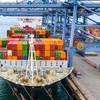Longshore Troubles Impact Canada Ports
Unionized workers started an unlimited strike at two terminals of the port of Montreal on Thursday amid stalled talks on a new labor contract, the employers' association said. The strike affects two terminals operated by Termont, which handle about 40% of the port's container traffic and roughly 15% of the port's overall cargo volume. Separately, Port of Vancouver foremen will be locked out on Monday unless they scrap a proposed strike, employers at Canada's biggest port said on Friday, but grain handling would not be affected.
Addressing the Montreal situation, the Maritime Employers Association called on federal Labour Minister Steven MacKinnon to intervene to bring parties back to the negotiating table. "The uncertainty caused by this long delay and the recurrence of labor disputes are affecting the Quebec and Canadian economies, and Canada's reputation as a reliable and resilient trading partner," said the Maritime Employers Association when the strike commenced on Thursday.
At the Port of Montreal, workers are represented by the Canadian Union of Public Employees. Commodities like Western Canadian pulse crops are significant users of the terminals. For its part, the union has said that it has focused actions on Termont because of employer-specific complaints. "Termont is targeted because it is the only company at the Port of Montreal to modify schedules in a punitive way," Canadian Union of Public Employees 375, which represents the longshore workers, said on Oct. 28.
The employer's association previously asked for federal intervention.
Meanwhile, the British Columbia Maritime Employers Association said the proposed lockout of more than 700 foremen was preventative as the unit of the International Longshore and Warehouse Union representing them had already issued a 72-hour strike notice. If the union withdraws the strike notice, Monday's lockout will not go ahead, the association said in a statement.
The two sides are in protracted talks over a labor deal and have been negotiating with the help of a federal mediator. The stoppage would also affect the port of Prince Rupert. "In anticipation of escalating and unpredictable strike action, the BCMEA has made a decision to take defensive action in the form of a coastwide lockout," it said in a statement, adding, "It will not affect longshoring operations on grain vessels or cruise operations."
The association said the lockout notice has been issued in order to "facilitate a safe and orderly wind down of operations" in anticipation of a strike. ILWU local 514 president Frank Morena said in a statement that it had only planned "limited job action" such as refusing overtime and accepting some technological changes, Canadian Press reported.
The impasse comes after a long-simmering dispute over pay and working conditions, including concerns over automation, with each side accusing the other of bargaining in bad faith.
Grain and other exports from the west coast were hit in August by a labor dispute at Canada's two major railways, which the federal government ended by imposing binding arbitration. The government has resisted calls to interfere in collective bargaining in other disputes, other than offering mediation.












